On the way to leadership
Responsibility, friendships, and foreign cultures: Katharina and Justus talk about highlights and lessons learned during their time in the Bosch Junior Managers Program.
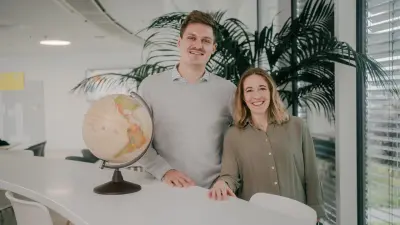
The Bosch Junior Managers Program (myJMP) supports young talents on their path to leadership. Participants gain insights into different activities and subject areas at 4–6 stations in Germany and abroad. The ability to individually shape their program allows trainees to further develop their skills in the way they want.
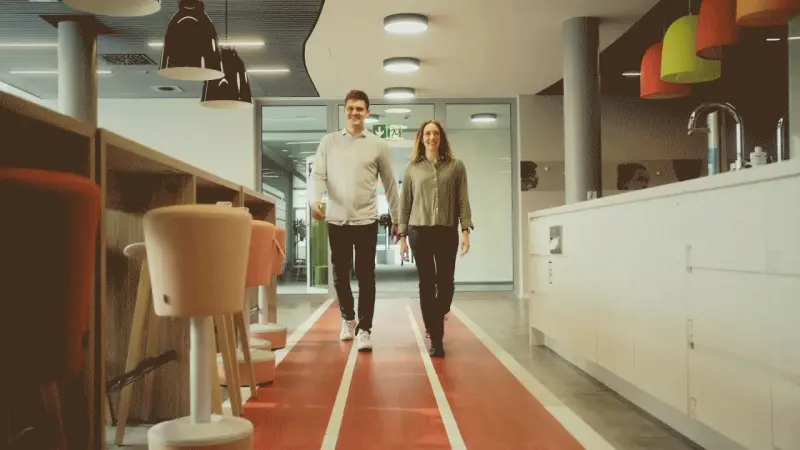
Katharina has been working as a Supply Chain AI Business and Process Analyst at Bosch Power Tools in Leinfelden since March 2022, while Justus has been Product Manager at Bosch SOFC (Solid Oxide Fuel Cell) in Stuttgart-Feuerbach since June 2021. Both started the same way at Bosch, as they took part in the Junior Managers Program.
Which stations did you go through during your myJMP?
Katharina: myJMP is set up individually, so the stations are different for everyone. I studied industrial engineering and did my PhD at the Karlsruhe Institute of Technology in the field of materials handling and logistics. After that, I worked as a senior project manager for a large airport operator. That’s why I completed the myJMP stations in logistics — one example being Central Logistics at Bosch Powertools. During my stay abroad in Malaysia, I worked in purchasing for Southeast Asia for three months.
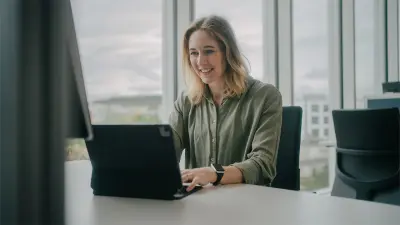
Justus: I studied regenerative energy systems, so Bosch Thermotechnology was particularly exciting for me. In my first year there, I was able to fully immerse myself in various areas of energy technology. I then switched to Bosch eBike Systems. That was a completely different world in which I worked with innovative mobility options. I also worked at Bosch eBike Systems in Lund, Sweden, for my station abroad.

How did you choose your station abroad?
Katharina: You can do the foreign station at any Bosch location in the world. I chose Malaysia because I had no purchasing experience at that time. In Malaysia, I had the opportunity to learn the tools of the trade in purchasing. We got a lot of support from Bosch in terms of planning: the accommodation, flights and local transport are arranged for you and there are fixed contact partners.
Justus: What really appealed to me about Bosch eBike Systems in Lund were the technical aspects. I was able to delve into software development there and worked on developing an anti-theft feature. I’ve also always been fascinated by Scandinavia, so it was a great opportunity for me to learn a bit more about the culture.
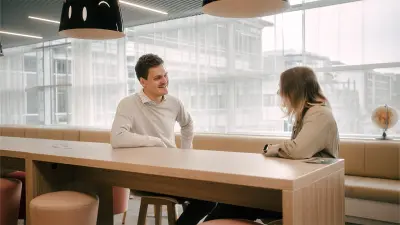
What do you particularly remember from your time there?
Justus: The work processes in my team in Lund were completely agile. We planned our work in sprints, achieved goals together and implemented projects in just a few weeks. This special form of working together really inspired me and I still benefit from it today. I also have fond memories of my farewell party. Not because I was happy to go — but because the whole team got together for a picnic in the park that day.
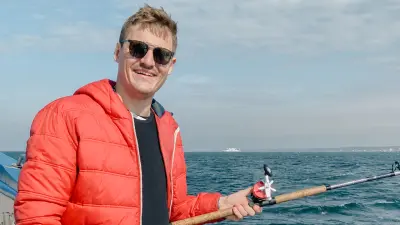
Katharina: I was really inspired by my supervisor in Malaysia and his leadership style. As soon as I arrived, I had to go to a quarantine hotel because of the coronavirus rules in place at that time. He really helped me during this time and made me feel like we were a team and were all responsible for one another. For example, he started a chat group where I could share ideas with the others, and he made sure that I had WiFi during quarantine. I also saw this solidarity and open attitude in his understanding of leadership. He was able to motivate and inspire our whole team.
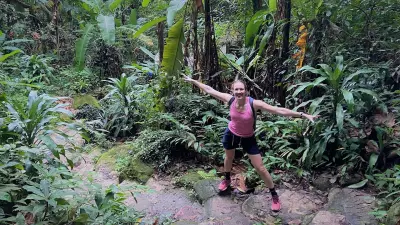
“I was really inspired by my supervisor in Malaysia and his leadership style. He was able to motivate and inspire our whole team with his open attitude.”
Why is international experience especially important for future managers?
Justus: You can only lead successfully if you understand people's different ways of working and their different personalities. How you learned to act isn’t always the only way — or the right way. You often only understand this, when you have spent a lot of time with people, who have a different cultural background. In my opinion, it is very important for a leader to gain insights into various cultures and also into other areas of work. The more you listen, watch and understand people who approach things differently, the more you grow yourself — and that’s ultimately the purpose of myJMP.
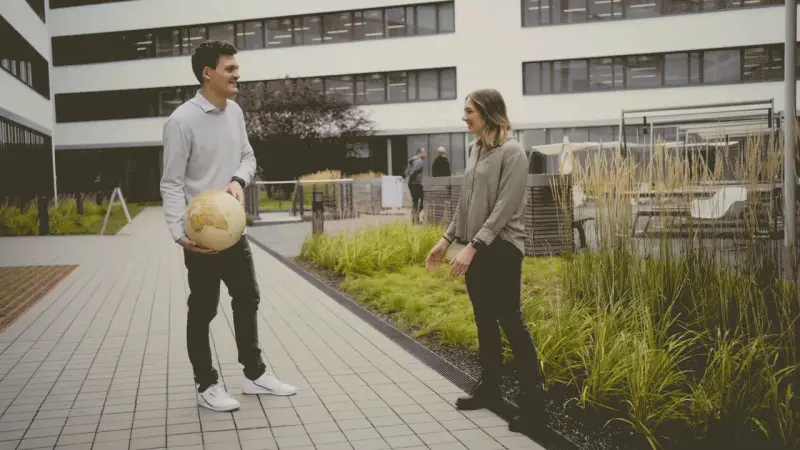
“You can only lead successfully if you understand people's different ways of working and their different personalities.”
What was particularly challenging for you during the myJMP?
Katharina: The time abroad is a challenge at first — mainly adapting to a new environment and the different ways of working. For example, compared to Germany, I had to work harder to push things forward — things didn’t come easily to me. An important learning was that it helps to be as open and proactive as possible in new situations. For example, my supervisor at the time had the attitude that the country doesn’t adapt to you, but you have to adapt to the country. I found this attitude totally important to get the most out of my time there and quickly feel like I was part of the team.
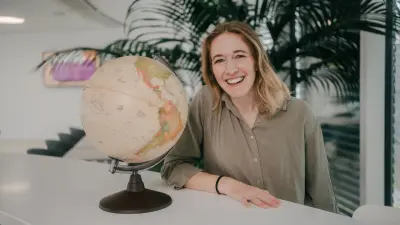
Justus: In myJMP you're expected to want to take on responsibility right from the very beginning and that means you are often thrown in at the deep end. On the first day, I was basically told, “You’re the project manager now, that’s the project, do it” — and of course I didn’t have very much knowledge of the field at that point. But I knew that I really wanted to take this path and to do so, I had to fight my way through a lot of new subject areas. I think this willpower is very important, especially at the beginning. And the nice thing is that it’s not just you, it’s the same for the other trainee participants. The exchange and mutual support within the network are all the more valuable in these situations.
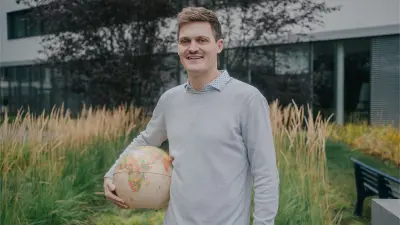
Apart from the professional input, what was the great added value of myJMP for you?
Justus: For me, the other participants and the network that you create are at the heart of the program. I moved to Stuttgart for it and didn’t know anyone there. It’s the same for the others meaning they are more open to socialize. I actually ended up meeting a lot of my closest friends through myJMP. All participants also have a mentor from the higher management. I was able to make a lot of contacts through my mentor and have benefited greatly from talking to my mentor on a regular basis. Targeted support on your way to becoming a leader is extremely valuable too, of course. During this time, I learned what is important for successful teamwork and what it really means to take on responsibility.
Katharina: The people were the biggest win for me, too. By organising regular meetings, Bosch makes it very easy to exchange with each other. I’m still in contact with many other program participants today. A myJMP colleague who was in Malaysia at the same time as me, is now one of my best friends. But the big network is not just valuable on a personal level — as a former trainee, you know someone in almost every business area. This is super valuable. For example, if you need an expert opinion from another area, you can simply call or send an e-mail.

What are the requirements for myJMP?
Katharina: Of course, it’s important to aim for a leadership role in the future and to have the right qualifications for it. In addition to professional skills, this mainly includes the ability to inspire others. Apart from that, the great thing about myJMP is that you don’t have to have a very specific CV. For example, the program isn’t just for graduates. I’d completed my university degree a few years prior to starting. The people in the program are just as diverse as your options are when it comes to arranging myJMP. And you don’t have to conform to any ideals or put on a pretence. In my experience, we are accepted for who we are at Bosch. If you try to stay authentic in all situations and keep that human touch, you will be most successful on the path to leadership.
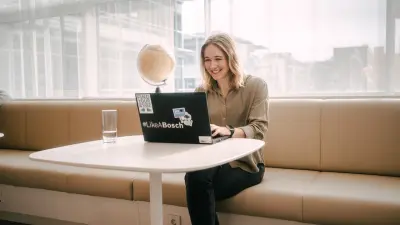
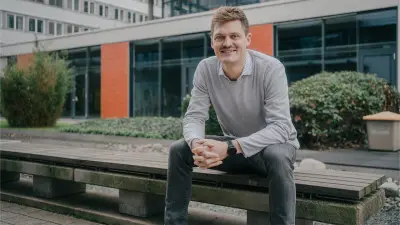
Justus von Rhein
Product Manager, Bosch SOFC
Justus grew up in Namibia and came to Germany to study regenerative energy systems at Dresden University of Technology. He found out about the Bosch Junior Managers Program while studying at Dresden University of Technology and the University of Colorado Boulder and started the program shortly after graduating with a diploma. In the program, he gained insights into various areas, including Bosch Thermotechnology in Wernau and Bosch eBike Systems in Lund, Sweden. Today, Justus works as a Product Manager at Bosch SOFC (Solid Oxide Fuel Cell) and is involved in developing a decentralised fuel cell for sustainable energy supply.
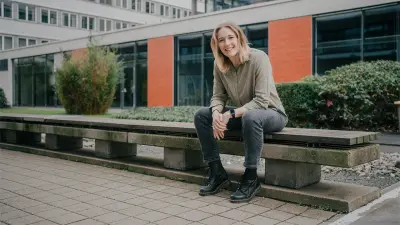
Katharina Fleischer-Dörr
Supply Chain AI Business and Process Analyst
Katharina studied industrial engineering for her bachelor’s and master’s degree (focus on logistics) at the Karlsruhe Institute of Technology. She then completed her PhD there at the Institute for Materials Handling and Logistics. In this time, she gained her first leadership experience by leading a research group. After that, she worked as a senior project manager for a large airport operator before starting her myJMP at Bosch in the Logistics department. Among other things, she gained insights into central logistics at Bosch Power Tools in Leinfelden and the purchasing department of Bosch Power Tools in Malaysia. Since completing her myJMP, she has been working at Bosch Power Tools as a Supply Chain AI Business and Process Analyst.